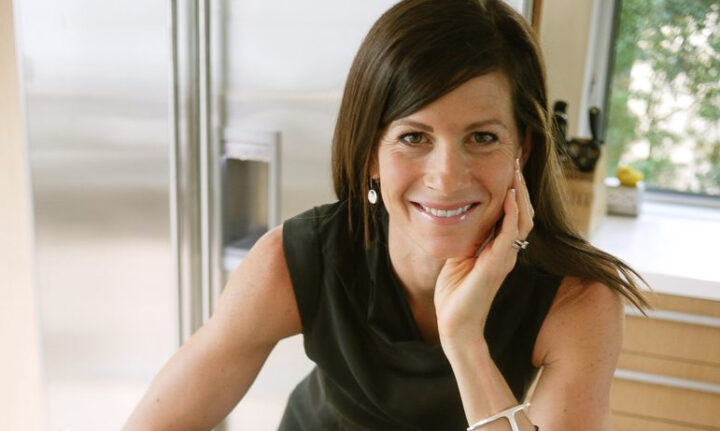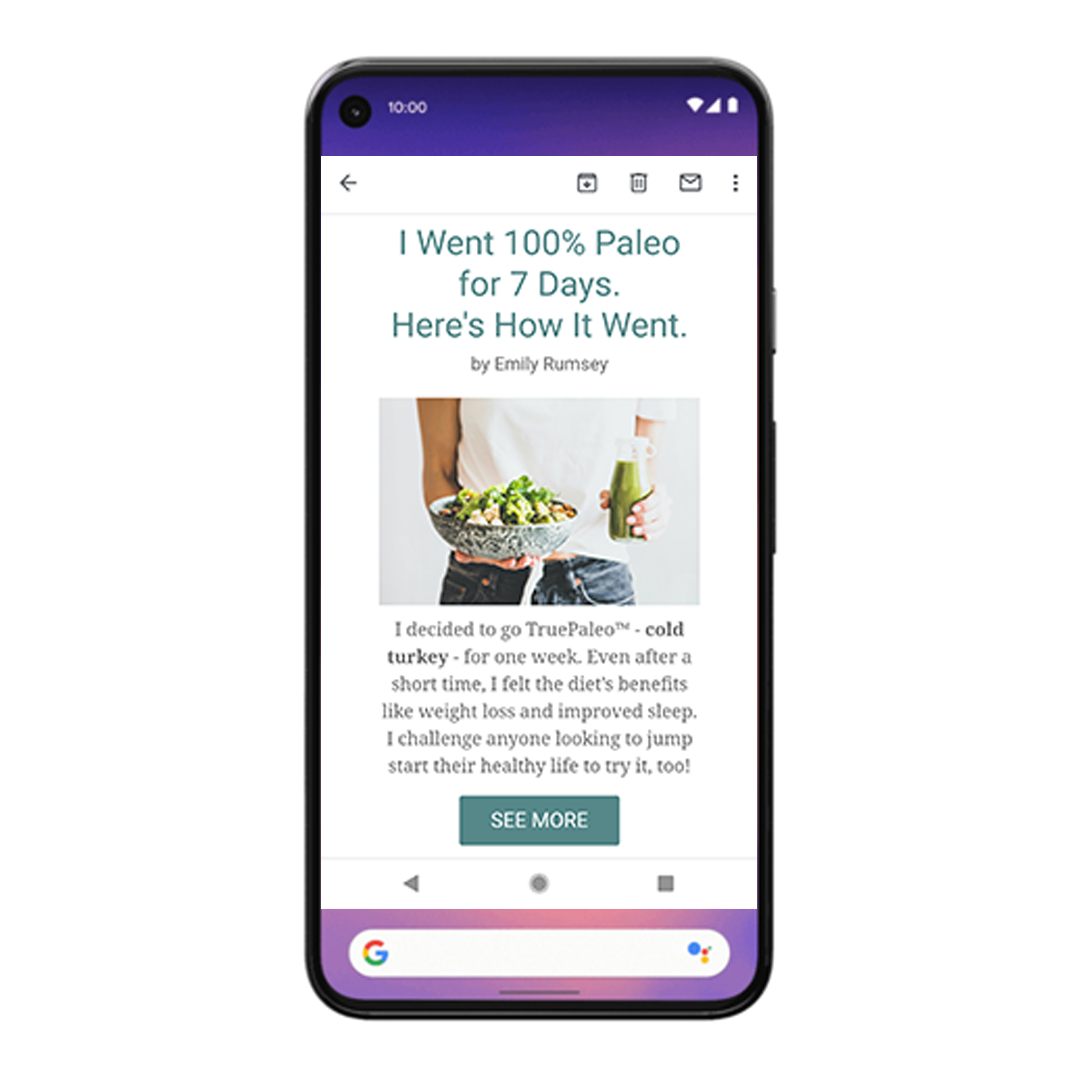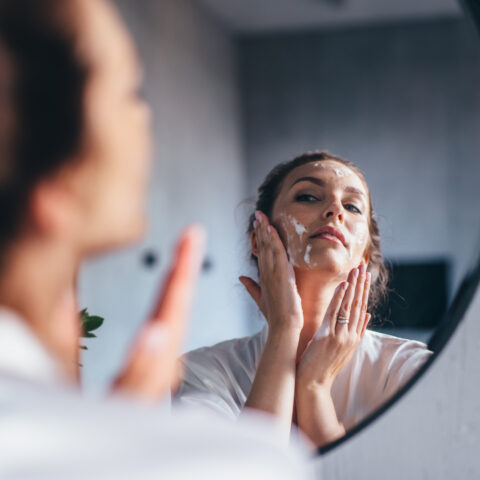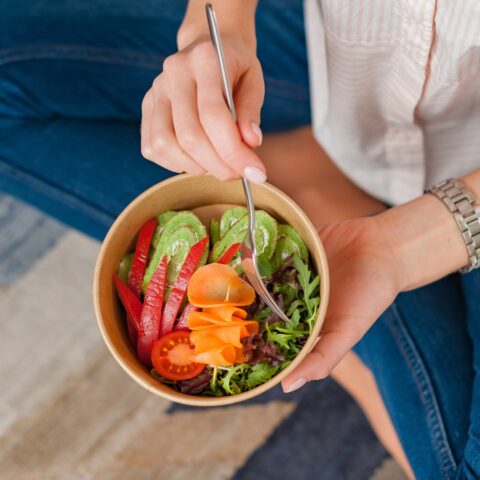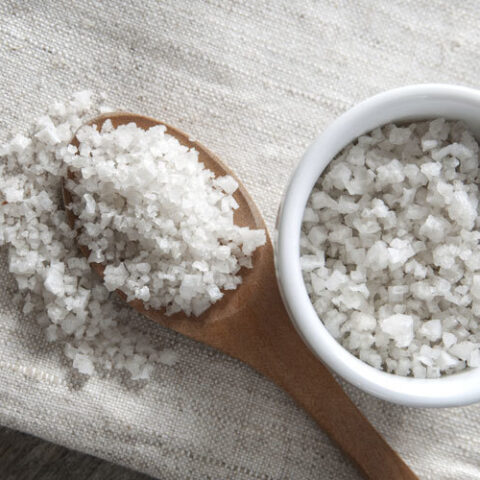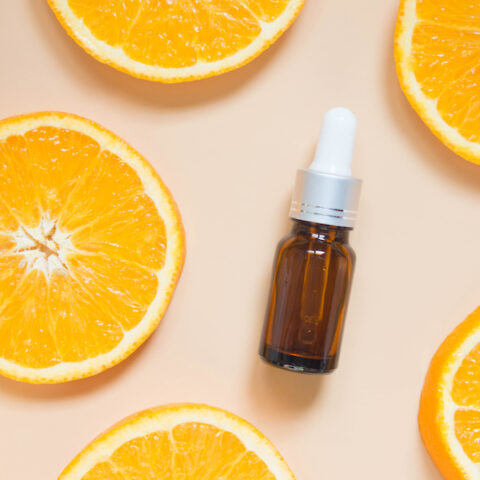Eating the Right Fat
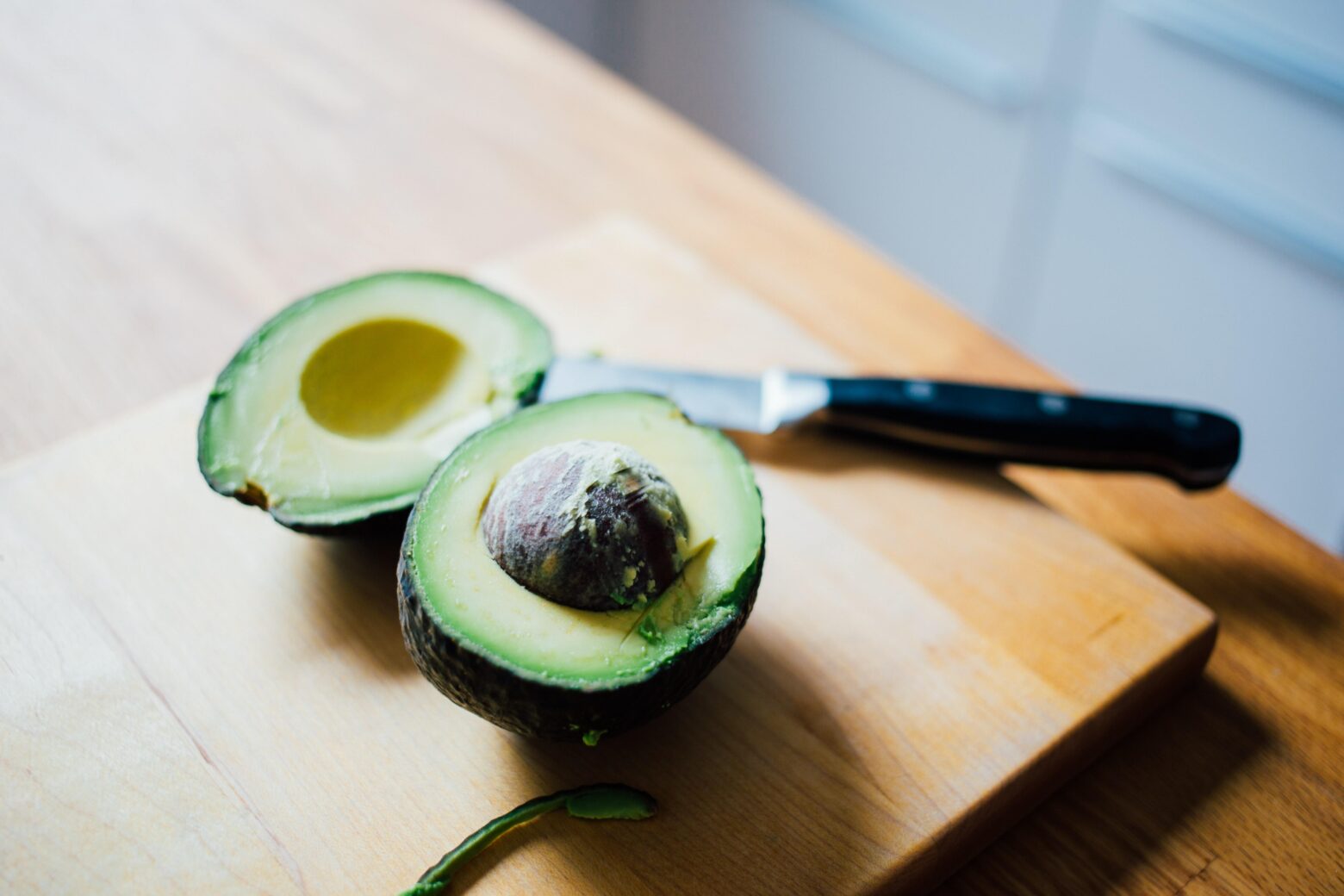
Let’s face it: we have fat-phobia. We’re afraid of not being able to lose the fat and we’re also afraid to eat it! “Doesn’t fat make people fat?” is probably one of the most commonly asked questions.
I, too, was in the same boat for a long time, having lived through the glorious early 90’s low-fat/ fat-free craze.
Here’s the thing: real, healthy, unrefined fat balanced with wild proteins and plenty of fresh, local, seasonal veggies will help you lose weight, not gain it!
If you’re dressing your veggies with olive oil or topping your salad with avocado, you’re 50% there. Try upping your intake and see what happens.
One client reported using a scant teaspoon of olive oil on her salad with the juice of an entire lemon; another said she often relied on seven almonds and an apple as a snack.
It’s not enough, not by a long shot.
I’m not suggesting you chug a bottle of Greece’s finest, but add a little more than you normally would and see if you don’t feel more satiated after every single meal with a more balanced blood sugar level as a result. Give it a week and I’ll bet you won’t go back.
Go-to healthy fats
Remember to use extra virgin olive oil, raw avocado and coconut oil as your go-to fats. And, don’t go nuts with nuts!
Nuts are high in Omega-6’s and meant to be eaten as the occasional garnish, not by the handful because they are ‘easy’.
With information popping up left and right in the world of Paleo, it’s easy to get caught up in some of the recommendations that may or may not be accurate.
Some of the suggestions you might see:
- Eat unlimited fat The Paleo Diet, as long as there’s no trans-fat.
- Use as much butter and cream as you like; just make sure it’s from grass fed cows (this one in particular is interesting, since dairy is not part of The Paleo Diet!).
- Have as much bacon as you like.
None of these are the right idea.
Sure, a true Paleo regimen has a balanced amount of good fat, but if you think you can consume unlimited amounts of fat and not risk gaining, or being able to lose weight, you’re in for a rude awakening.
While I’d never recommend anyone confine themselves to a lifetime of weighing and measuring, if you’re honestly following the real deal of a Paleo approach and not losing weight, take a step back and analyze how much fat you’re really eating.
For example, if you’re helping yourself to the entire bowl of guacamole, finish off an entire grass-fed rib eye on top of a bed of arugula, and then heavy-handedly douse the skillet with coconut oil before sautéing some garlic and chopped broccoli, you could very well find the hidden source of calories and subsequent reason for being unable to shed pounds.
I am not for one second suggesting a low-fat approach, rather just an experiment to see how many calories you’re really eating.
One of my clients did this and was shocked to find her caloric intake throughout one day was well over 3,500 calories. She’s 5’4”, does yoga three times per week and was trying to reach her goal weight of 130 from a starting weight of 145. She realized she was consuming 1/4 cup of olive oil in her sautéed veggies, nearly an entire cup of nuts and another 1/4 cup of coconut oil in her dinner preparation each day, when she measured the typical amount she’d been using.
So, don’t go low fat, or fat-free. Just take one, single day and see what you’re really eating. There’s nothing better than some hard data to provide accurate answers, rather than getting frustrated, thinking you’re doing everything right, and it’s ‘just not working’ and then giving up.
The bottom line is simple: if you’re eating thousands of extra calories per day and only expending a fraction of that, you’re not going to lose weight.
While you’re far less likely to experience blood sugar peaks and valleys if you’re eating too much fat compared to too many carbohydrates, and, in particular, white sugar, quantify it with data before calling it quits.
Balance is the key, and some trial and error is inevitable before we can each find our own perfect Paleo balance.
I can promise you, it’ll be worth it!
Nell Stephenson, B.S.
Nell Stephenson has been an advocate for The Paleo Diet since 2011, and is the co-author of The Paleo Diet Cookbook.
More About The Author